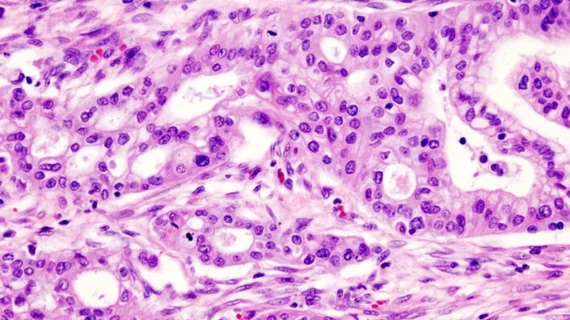Mayo Clinic researchers gain ‘unprecedented’ insight into breast, ovarian cancers
Mayo Clinic researchers harnessing multiple advanced imaging methods have gained an “unprecedented” understanding of breast and ovarian cancers.
The team turned to both nuclear magnetic resonance spectroscopy and cryo-electron microscopy for their work, shared Wednesday in Nature. In doing so, they earned valuable insight into the BRCA1-BSRD1 protein complex, which is often mutated in patients with certain forms of cancer.
“BRCA1-BARD1 is important for DNA repair. It has direct relevance to cancer because hundreds of mutations in the BRCA1 and BARD1 genes have been identified in cancer patients," lead author Georges Mer, PhD, a structural biologist and biochemist at Mayo said July 28. “Now because we can see how BRCA1-BARD1 works, we have a good idea of what regions of BRCA1-BARD1 are important for function."
The Mayo team explained that BRCA1-BARD1 contributes to fixing broken DNA strands, thereby maintaining cellular survival. But it also could be blocked or inactivated if cancer cells use this protein complex to survive chemotherapy treatments.
Using complex programming, the group images data from these proteins samples to create a three-dimensional structure. And thanks to the advanced imaging techniques, they were able to visualize the complex structure in action and uncover one of its new functions.
The high-resolution images are expected to guide patient care and future cancer treatments by classifying different variants and directing drug development programs.
"With these 3D structures, we should be able to convert several variants of unknown significance to likely cancer-predisposing variants," Mer explained. "This work is also expected to have an impact on drug development in the long term because the 3D structures of BRCA1-BARD1 in complex with the nucleosome we generated may help in the design of small molecules that could, for example, inactivate BRCA1-BARD1."

